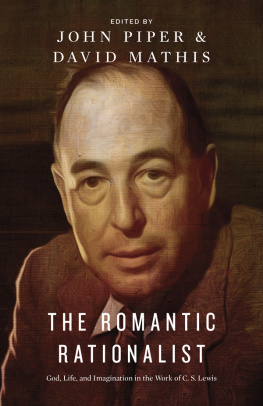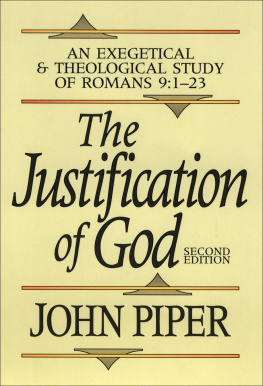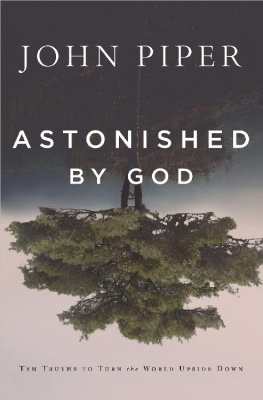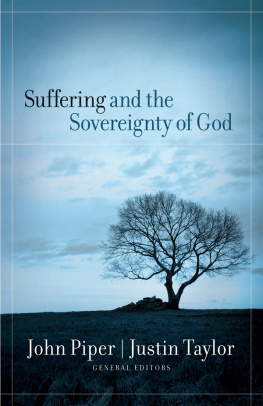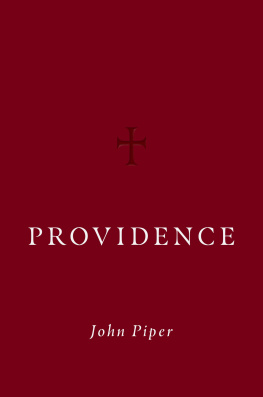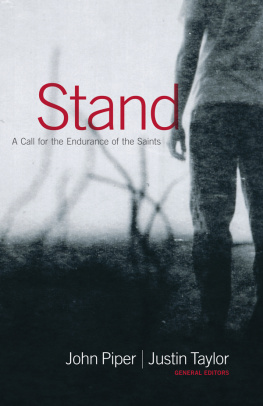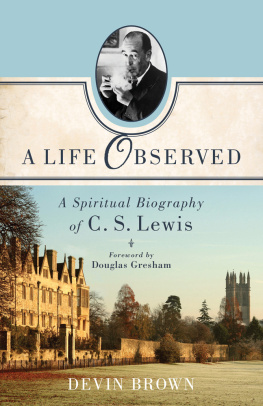but rather some great objectsome great truth they see together, and about which they greatly care. We may picture Lovers face-to-face looking into each others eyes, but we envision Friends side by side, eyes looking ahead.
God has been kind to us in giving the team at desiringGod.org not just companions in the mission, but real friendships. Along with the executive leadershipJon Bloom, Scott Anderson, and Josh Etterthere is an unusual esprit de corps among the content team with whom I labor week in and week out. I thank God for Stefan Green, Jonathan Parnell, Tony Reinke, and Marshall Segal with whom we daily press on in biblicity and devotionality and creativity and gospel centrality and the pursuit of joy. Along with the writing of John (Piper) and Jon (Bloom), and the leadership of Scott and Josh, it takes the serious, full-throttle, ready-to-inject-humor engagement of this team to make our daily content offerings at desiringGod.org be what they are.
This volume is now the eleventh and final Desiring God National Conference book. The first conference was held at the three hundredth anniversary of the birth of Jonathan Edwards, in October of 2003, and the first volume (A God-Entranced Vision of All Things) appeared the following year, in partnership with Crossway. Working with Piper, Justin Taylor shepherded the first six books to press, and now Ive had the privilege of stewarding these last five. Under God, without the on-the-ground energy and investment of Scott, with Dave Clifford, there would have been no Desiring God National Conferences. And without Justin and our ministry partners at CrosswayLane Dennis, Al Fisher, Lydia Brownback, and morewe would not have this set of what we hope is eleven enduring resources for the church.
C. S. Lewis is a fitting conclusion to this series of eleven. The two writer-thinkers who have most shaped Johns life and ministry, and this strand of theology we like to call Christian Hedonistic, are Edwards and Lewis. The first volume celebrated Edwards; now this last one, Lewis. Along the way, we remembered John Calvin (2010), and we tackled the topics of sex (2005), suffering (2006), postmodernism (2007), perseverance (2008), the power of words (2009), the life of the mind (2011), global missions (2012), and Christian sanctification (2013).
But now, in this season ahead, we hope to dig and solidify the foundation beneath, and the strength in, these important areas of focus. For John and the team here at desiringGod.org, our life-after-the-National-Conference is a new venture were calling Look at the Book. Its a fresh effort to help Christians new and old go deeper in reading the Bible for themselves. John wrote this recently in announcing our new season:
So I have a new and focused passion to help people really see the riches of Gods word for themselves, and that has new and exciting implications for me and for the ministry of Desiring God.
When I think of the coming generations, I am not content to only leave them a deposit of books and sermons that celebrate the glories of God and the wonders of Christian Hedonism.... If future generations only learn what we saw, and not how to see it for themselves, they will be second-handers. And second-handers cannot last. They grow bored and boring. Powerful, truth-preserving, God-glorifying, Christ-exalting, soul-ravishing, mission-advancing ministry is sustained by the power to see for yourself the glories of Gods word.
Our hope is that the caterpillar of our National Conferenceand hes been a wonderfully fruitful caterpillarwill become this butterfly called Look at the Book, which will help Christians dig ever deeper in Gods own words and bring greater ballast to our lives in these stormy, increasingly post-Christian days for the Western church.
All this, of course, is our little endeavor, we hope empowered by the Spirit, for the glory of our Lord, Savior, and Treasure, Jesus Christ. It has been our aim, in all things Internet, and all things conferencing and publishing, to make much of him by presenting glimpses into the grandeur of who he is and readying Christians to live for his fame with ever-ripening satisfaction in him. Above and beneath and in all our gratitude for our friends at desiringGod.org and ministry partners at Crossway, we acknowledge and adore Jesus. It all is empty apart from him, and all future ventures to help people read their Bibles, or whatever else, are vain, unless his blessing is on it. Knowing him and enjoying him is the great goal of our lives and every ministry effort.
David Mathis
Minneapolis, Minnesota
May 5, 2014
_________________
C. S. Lewis, The Four Loves (New York: Harcourt, 1960), 61.
Ibid.
The safest road to hell is the gradual onethe gentle slope, soft underfoot, without sudden turnings, without milestones, without signposts.
C. S. Lewis, The Screwtape Letters
Lewis said many profound and fascinating things about hell. Some are biblically precise, while others are more abstract and subject to misunderstanding. In some cases, his views are not solidly biblical. But many of his insights on hell are true to Scripture, and some of his speculations are compelling food for thought.
Hell: Grave Injustice or Ultimate Justice?
Lewis said in The Great Divorce, There are only two kinds of people in the end: those who say to God, Thy will be done, and those to whom God says, in the end, Thy will be done.
Of course, God does not fully let people have their way, since it is clear, for instance, that the rich man in Luke 16 wants out of hell but cannot escape it. Lewiss point is, when someone says, I do not want to have a relationship with God, in that limited sense they ultimately get their way. The unbelievers wish to be away from God turns out to be his worst nightmare.
Nonetheless, those who do not want God do want goodness and happiness. But what makes anything good is God. Second Thessalonians 1:9 describes hell like this: They will suffer the punishment of eternal destruction, away from the presence of the Lord. Where God withdraws, there can be no good. So, in Lewiss terms, the unbeliever gets what he wantsGods absenceyet with it gets what he doesnt wantthe loss of all good.
C. S. Lewis said of hell, There is no doctrine which I would more willingly remove from Christianity than this, if it lay in my power. But it has the full support of Scripture and, specially, of our Lords own words; it has always been held by Christendom; and it has the support of reason.
Most of what Lewis says here is solidly biblical. Where there may be a chink in his logic is exactly where it is for many of us. We wish there were no helland imagine this comes from our sense of goodness and kindness. But God could remove hell yet chooses not to. Do we have more confidence in our goodness than his?
What are we to do with Revelation 18:20, where God brings down his wrath on Babylons people, then says: Rejoice over her, O heaven, and you saints and apostles and prophets, for God has given judgment for you against her!? Doesnt this suggest that in heaven we will see sins horrors clearly and have far stronger convictions about hells justice?
Hell is not pleasant, appealing, or encouraging. But neither is it evil; rather, its a place where evil is judged. Indeed, if being sentenced to hell is just punishment, then the absence of hell would itself be evil.
Hell Itself Is Morally Good, Because a Good God Must Punish Evil
Most of us imagine that we hate the idea of hell because we love people too much to want them to suffer. But that implies God loves them less. Our revulsion is understandable, but what about hell makes us cringe? Is it the wickedness thats being punished? Is it the suffering of those who might have turned to Christ? Or do we cringe because we imagine hells punishments are wicked or disproportionate? These very different responses expose different views of God.
Next page
